Interview
Latest

What EA learned from 'Mass Effect' will shape its future
When I spoke to Electronic Arts Executive Vice President Patrick Soderlund last week, Kotaku's report about why Mass Effect: Andromeda turned out so poorly hadn't been published yet. Nonetheless, when I asked him about the flawed game's development cycle, he was incredibly candid -- just as he had been in 2013 when I'd interviewed him about his company's move from myriad game-design toolkits to just two. Here are his thoughts on several key topics.

Two people spent 48 hours in nonstop virtual reality
If you own a virtual-reality headset, you've seen a few health and safety rules. Don't use your VR headset in a moving vehicle, for instance, or make sure to take frequent breaks. For most of us, these guidelines make sense: VR nausea is a very real problem, and limiting our time in artificial worlds is the easiest way to avoid getting simulator sickness. But what if you broke all the rules and decided to stay in virtual reality for 48 hours straight -- eating, sleeping, working and living in a VR headset? Well, then you'd be Dean Johnson, head of innovation for Brandwidth and crazy man who spent two days blindfolded with technology.
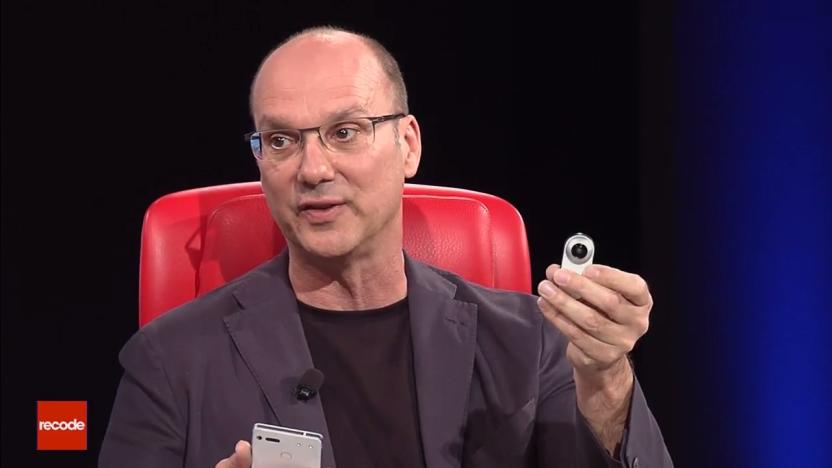
Andy Rubin's Essential phone should ship next month
During an interview with Walt Mossberg tonight at the Code Conference, Android creator and now Essential Products CEO Andy Rubin showed off his latest creation, the Essential Phone. When it was announced this morning and reservations opened the company didn't say much about when to expect shipments, but in response to a question from Mossberg, Rubin said that he "wouldn't take reservations if it wasn't going to ship in, you know, 30 days or so." He also mentioned that the company's Home assistant would be able to support AI helpers from other companies like Google, Amazon or Apple (if they choose to make them available on its Ambient OS).

ASUS' Tango-powered ZenFone AR will hit the US in July
We already knew from Google I/O earlier this month that ASUS' ZenFone AR, the second-ever Tango phone (and the first to also support Daydream), was getting close to its official launch, and that it's coming to the US as a Verizon exclusive this summer. Thankfully, we now know when people will actually be able to buy one. Right after ASUS' pre-Computex keynote today, I sat down with CEO Jerry Shen who revealed that this device will finally be launching in Taiwan in mid-June, followed by a US launch as soon as late June or early July.
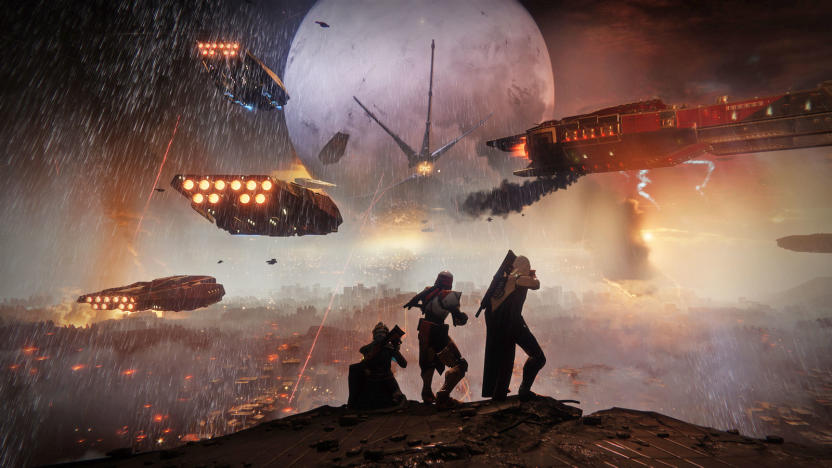
‘Destiny 2’ tackles the original’s biggest problem: storytelling
The first time I played the original Destiny, I felt frustrated and annoyed. It was a fun online co-op team shooter but the game's narrative was insultingly shallow -- a poorly written space opera where a vague "darkness" was out to destroy a mysterious entity called the Traveler that somehow thrust humanity into a golden age, but also might be dead. It took a year for Bungie to patch in interesting characters and emotional hooks with The Taken King expansion, but by then, I had moved on. Destiny 2, however, has my attention. Not only does it look like a good starting point for new players, but it has the one thing every epic story needs: a great villain.
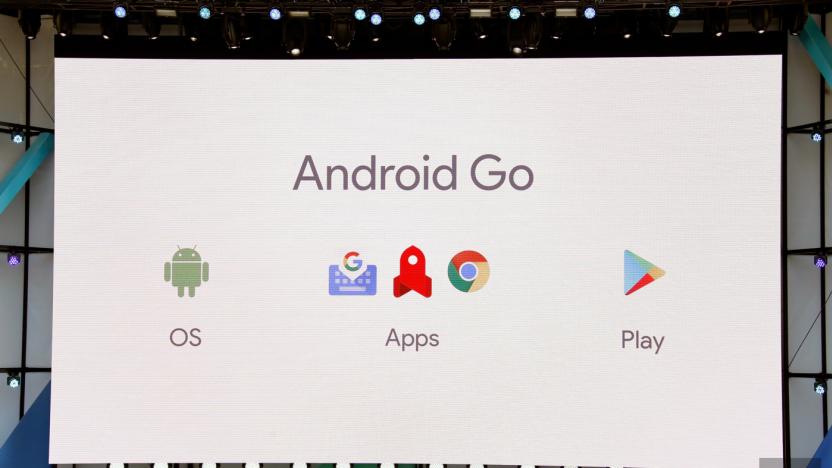
Android Go could help make Android O a runaway success
Android O might not seem like the most thrilling software update at first, but it just might be one of the most important. Google has been on a quest to capture and delight billions of new Android users for years with various initiatives. So far, scaling hasn't been a problem -- there are now 2 billion monthly active devices, and with Android Go, Google's hell-bent on picking up even more in developing and underserved markets.
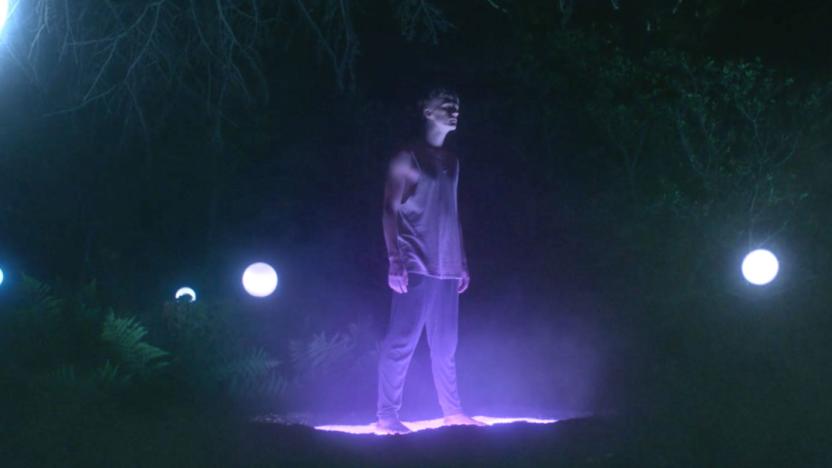
The next 'Dots' game is completely different, except for the dots
Dots, the studio behind a beautifully-designed series of mobile games (including Two Dots and last year's Dots & Co), just announced its next game: Wilds. As the title suggests, this game will be a departure from what the studio has produced thus far: It's the first game that doesn't have the word "dots" in its title. And the announcement game via an odd, enigmatic video that shows a lone figure in the middle of a dark forest, dancing among trees and glowing orbs. Those orbs surely resemble the dots that you must connect in the studio's other puzzle games, but there's no other hint as to what players can expect when Wilds arrives.
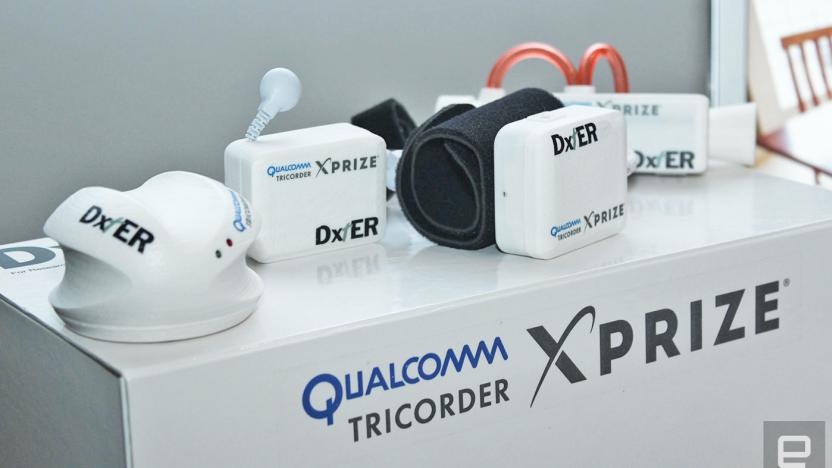
XPrize winner says its Tricorder is better than 'Star Trek'
The technology of Gene Roddenberry's Star Trek looked so far forward it could almost have been used as a visual aide to Arthur C. Clarke's third law: technology so advanced, it's indistinguishable from magic. Despite the fictional technological magic of transporters, replicators and warp drive, Qualcomm saw enough potential in the show's medical tricorder to challenge the world to build one. Now, the Tricorder XPrize finally has a winner in Final Frontier Medical Devices' DxtER. The result isn't so much an all-in-one scanner as collection of noninvasive medical-diagnosis gadgets. Even so, its creators claim the DxtER package is better than Star Trek's fictional tricorder.

Xiaomi still isn't ready to sell phones in America
Whenever I write about a new Xiaomi product these days, the response is usually sour comments along the lines of, "Why bother telling us when these won't be coming to our side of the world?" I, too, get frustrated (as if the poor data connection in Beijing wasn't enough to wind me up), because it has indeed been a long wait since I attended Xiaomi's first product launch almost six years ago. That bitterness has only gotten worse as the company's smartphones have become increasingly more appealing. Case in point: There are no plans for its new Mi 6 to enter the US or Europe. Meanwhile, Shenzhen-based OnePlus -- a much smaller and younger competitor, mind you -- has been able to form impressive lines in the US, UK and other places Xiaomi doesn't dare go.
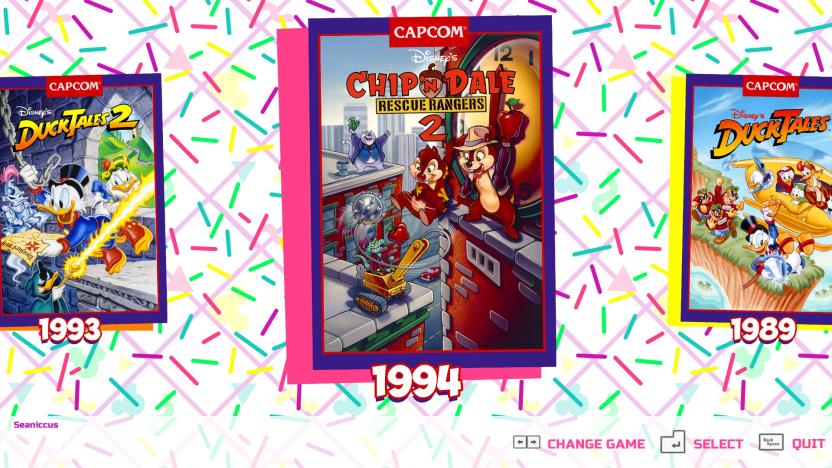
Capcom's collection of Disney NES games does retro gaming right
Recapturing the feeling of playing video games of bygone eras is no easy task. Sure, a simple emulator can technically drag ancient software to modern television screens, but anyone who grew up playing 8-bit games can tell you the experience isn't always the same. Pixel-perfect presentations can sometimes lack the nostalgic charm of the distorted, fuzzy tube TVs old games were originally designed for. That's one of the things that makes Capcom's Disney Afternoon Collection so special. It doesn't just collect Ducktales, Rescue Rangers and other iconic NES Disney games in convenient one package -- it wraps them in the style, context and visual limitations of the 1990s.

Explore Japanese gaming culture in 360 degrees with MatPat
Matthew Patrick is best known as the guy on YouTube who uses math, science and rabid curiosity to build intense, unexpected narratives from the stray plot threads of movies and video games. As the Game Theorists' MatPat, he asks if Mario is secretly a sociopath and questions if Sega's blue hedgehog really is the fastest mascot in gaming -- and then backs up his allegations by covertly teaching viewers about actual psychology and the speed of sound. Now he's expanding his passion for making entertainment educational with a travel show called The Global Gamer. Oh, and he's doing it in 360-degree virtual reality -- and you can watch the launch exclusively right here on Engadget.
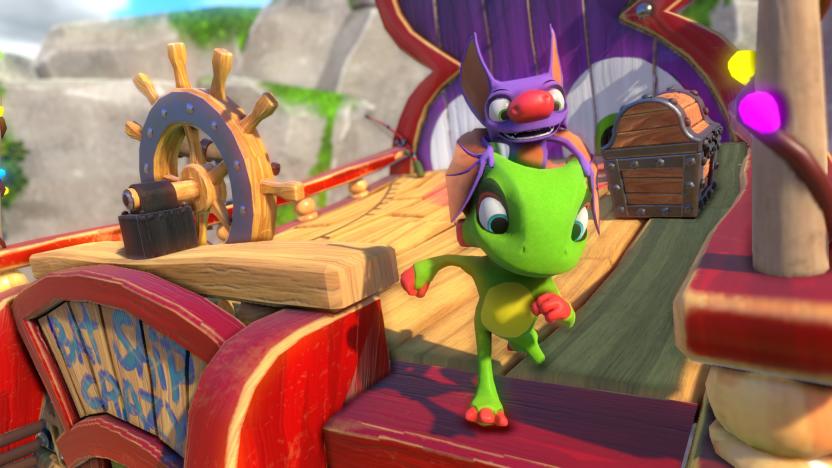
'Yooka-Laylee' is at the heart of a 3D platformer revival
A few years ago, the 3D platformer was in a bad place. Mario was still around, but the genre had little support elsewhere. Colorful games like Crash Bandicoot, Pyschonauts and Jak and Daxter had vanished in favor of grittier, more realistic adventures. There was the occasional surprise, like the papercraft-inspired Tearaway, but nothing close to the breadth of games found on the N64, PlayStation and PlayStation 2. The market had moved on, publishers thought, and it no longer made sense to fund ambitious, big-budget projects like Beyond Good and Evil.

Logitech's CEO says you can innovate and be humble
Logitech is a rare technology company. It's been around for 35 years, all the while finding different ways to thrive as an independent accessory maker. But despite being a well-known brand, it's never been considered "hip" like Apple or Beats. Instead of betting big on showy new products, Logitech has always focused on finding successful niches in which it can build a small-but-loyal following. And according to the company's CEO, Bracken Darrell, he wouldn't have it any other way. At SXSW last week, I sat down with Darrell to chat about the road ahead for Logitech.
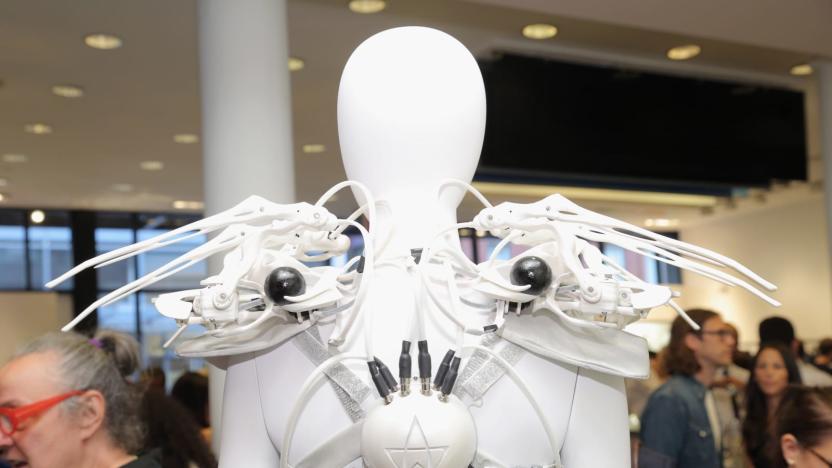
Intel wants to be a tech 'enabler' for the fashion industry
The line between technology and fashion is blurring. Brands and designers are now using electronics to make cutting-edge wearables and experiences, while companies like Amazon are trying to break into a space that hasn't until now been very welcoming of outsiders. Intel is another tech company that's set its sights on the fashion world, with various smart garments and accessories, including dresses, glasses and bracelets. In an interview at SXSW, Intel Vice President Sandra Lopez said her team's mission is to be an enabler first and foremost rather than trying to become a fashion brand unto itself.

'La La Land' composer on electronica's key role in the film
Damien Chazelle's La La Land might not have won that Oscar, but it did scoop up the one for Best Original Music Score. The man behind that score is Justin Hurwitz. Anyone who has seen the film will know that the soundtrack is largely divided between vintage Hollywood music and classic jazz -- the style favored by tortured musician Seb (Ryan Gosling). But for all of its antiquity, one of the biggest conflicts of the movie is Seb's struggle with pop success after joining his friend Keith (John Legend) in a band that fuses jazz flavors with modern electronic music. Hurwitz's challenge, then, was not only to score the movie but also to create a musical backdrop to Seb's journey of self-discovery, a journey that ultimately proves to be a crucial fork in the movie's twisting story.
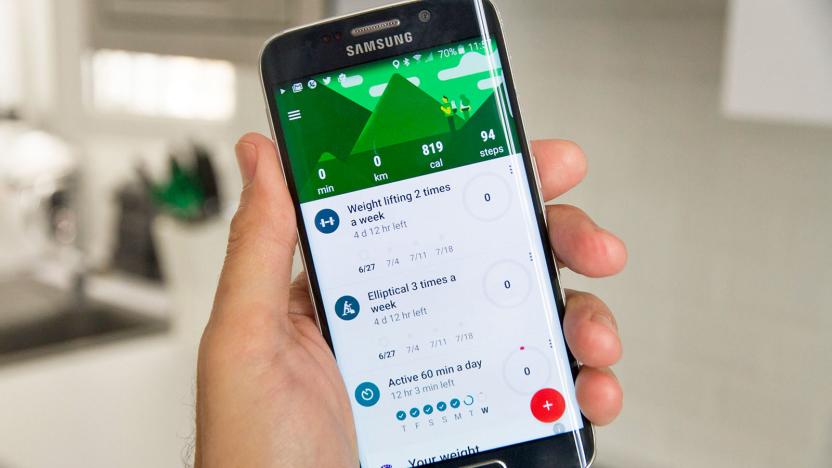
Google says crowdsourced data makes for better fitness apps
Google made a serious move into the health and fitness space when it introduced its Apple Health competitor, Fit, back in 2014. Since then, the company has been improving its platform by adding new features to help you keep better track of your daily activities, giving you information on real-time stats, workout logs and goals you've set out for yourself. Naturally, Fit is at its most useful when it has deep access to your personal data, as is the case for most tech products nowadays. This is key not only for the search giant's own apps, but also those from third-party developers that work on Android or are sending info to Fit from an iOS device.
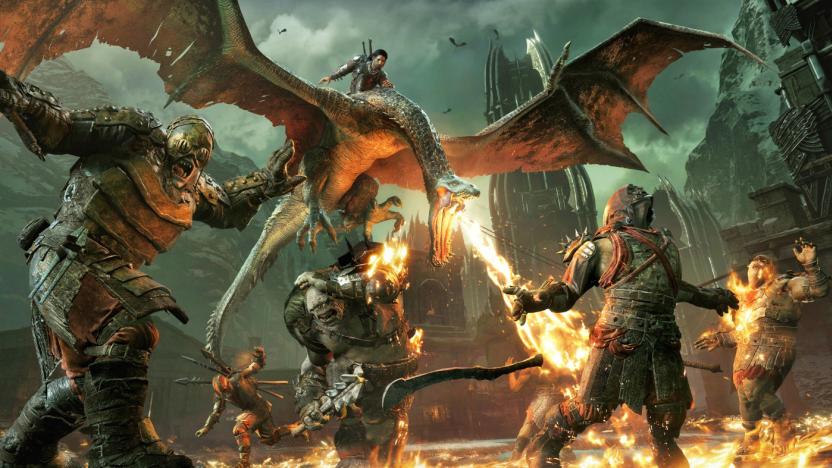
The Nemesis System is huge in 'Middle-earth: Shadow of War'
The standout feature of Middle-earth: Shadow of Mordor was the Nemesis System. It added a layer of strategy to an otherwise standard action game, allowing players to see the strengths and weaknesses of specific Uruk soldiers before striding into battle. The Nemesis System was like a game of chess superimposed on top of a rich fantasy world, innovating on the genre and tapping into players' desire to command an army rather than simply run around Mordor as a doomed man possessed by the spirit of a vengeful Elf. In Monolith's Middle-earth: Shadow of War, the Nemesis System is bigger, badder and more robust. Players will be able to not only gather information on the enemy armies -- staffed not only by Uruk anymore but also by mountain trolls and other beasts true to JRR Tolkien's Lord of the Rings universe -- but also to view strengths, weaknesses and personal history of their own armies.
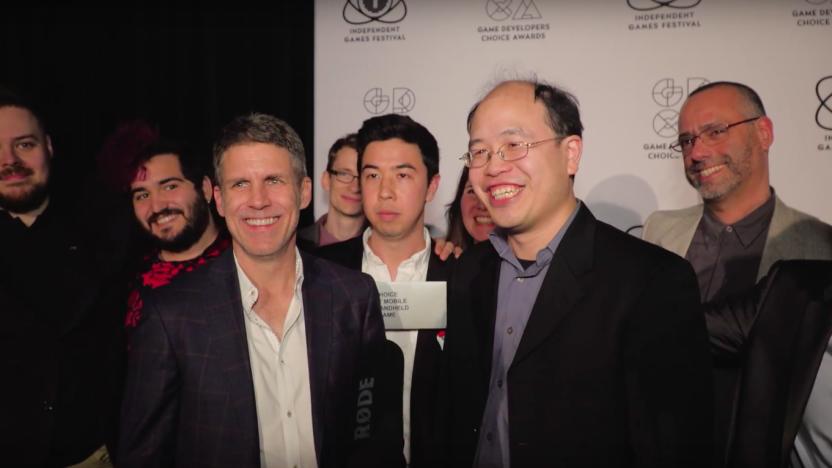
Backstage with the big winners of the IGF and GDC awards
Every year, the Independent Games Festival and Game Developers Choice award shows bring a bit of glitz and glamour to the Game Developers Conference in San Francisco. And 2017 was no different. The two back-to-back spectacles honor the most innovative and important titles of the past year, covering everything from mobile gaming and student projects to mainstream, AAA extravaganzas. We went backstage with the winners directly after they received their awards, capturing their thoughts on the industry -- and their massive smiles.

Why Tim Schafer keeps remaking his classic games
Tim Schafer is smiling and shaking hands with a hovering crowd as I sit down next to him. A college student asks if she can talk with him later about his career. A fan thanks him for his work -- a library of iconic video games that stretches back to the early '90s. He takes the time to respond to each of them, encouraging the student and graciously accepting the fan's gratitude before sitting down to walk me through a demo of Full Throttle Remastered, an HD remake of one of his first games. I ask him if it was strange to revisit a game he created over two decades ago. "It kind of reminds you of the lessons you learned, but forgot," he said. "Like, put a bunch of explosions on the cover of your box. That did really well for this game. I keep forgetting to put more explosions on the covers."
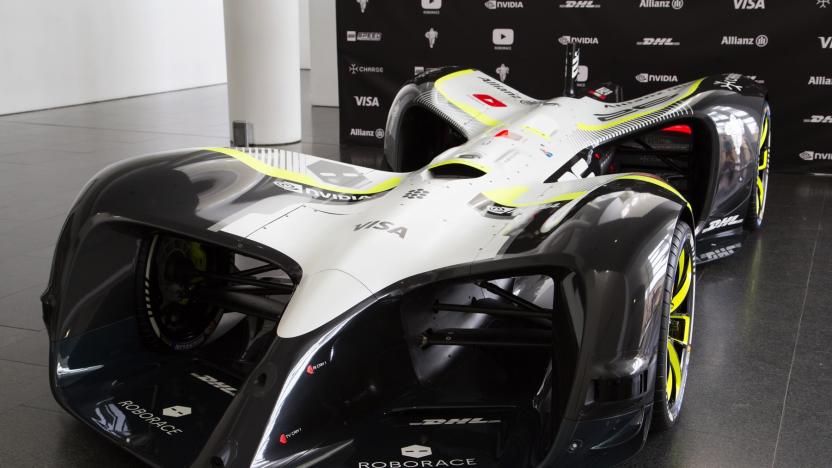
How Roborace is building driverless race cars
The lights dimmed and a hush fell over the crowd. The last hour had been building to this. Denis Sverdlov, CEO of Roborace, and Daniel Simon, chief design officer, took a step back as some knee-high panels were taken away and a silky cloth was lifted, revealing a mechanical monster underneath. More than a year after the project's announcement, the pair had finally revealed their first production-grade Robocar: a fully electric, driverless race car built from the ground up for a new breed of motorsport. One where the heroes are programmers, concocting the smartest and most competitive AI drivers.










